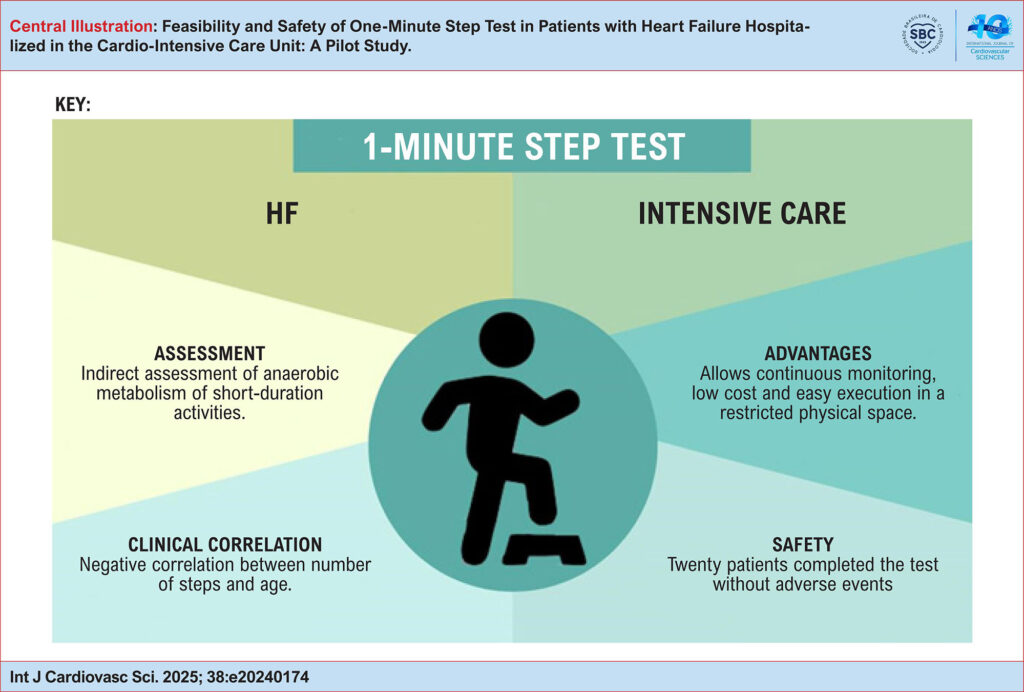International Journal of Cardiovascular Sciences. 25/jul/2025;38:e20240174.
Feasibility and Safety of One-Minute Step Test in Patients with Heart Failure Hospitalized in the Cardio-Intensive Care Unit: A Pilot Study.
Abstract
Background:
The One-Minute Step Test (1MST) seems to be a useful tool for exploring the component of energy metabolism used in Activities of Daily Living (ADL), but it is still little explored in patients with Heart Failure (HF) in the hospital environment.
Objective:
To evaluate the feasibility and safety of performing 1MST in hospitalized patients with HF.
Methods:
Data were collected using electronic medical records and evaluative tests from patients with HF. The safety of the 1MST was assessed through vital signs records, perceived exertion, adverse events, and feasibility based on the ability to complete the test. The paired Student’s T-test and Wilcoxon test were employed to compare the data before and after the test, depending on the distribution of the data, while the relationship between the variables was examined using Pearson’s correlation test. The significance level set was p < 0.05.
Results:
Twenty patients were evaluated between May and December 2022. All patients completed the test, and no adverse events were recorded. Heart rate (HR) (p < 0.001), systolic blood pressure (SBP) (p = 0.01), mean arterial pressure (MBP) (p = 0.03), and respiratory rate (p < 0.001), and peripheral oxygen saturation showed a reduction (p = 0.04). A negative correlation was observed between 1MST and age (r = −0.46; p = 0.03) and a positive correlation between 1MST and length of stay in the CICU (r = 0.44; p = 0.04).
Conclusion:
It is concluded that the 1MST is a safe and viable tool for assessing the anaerobic metabolism of patients with HF.
Palavras-chave: Heart Failure; Hospitalization; Exercise Test
245

